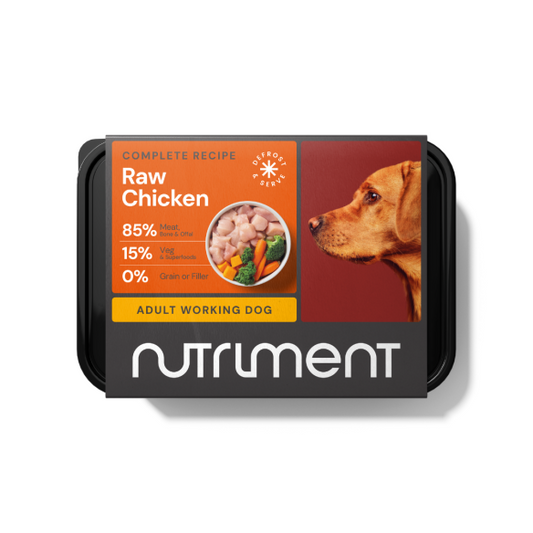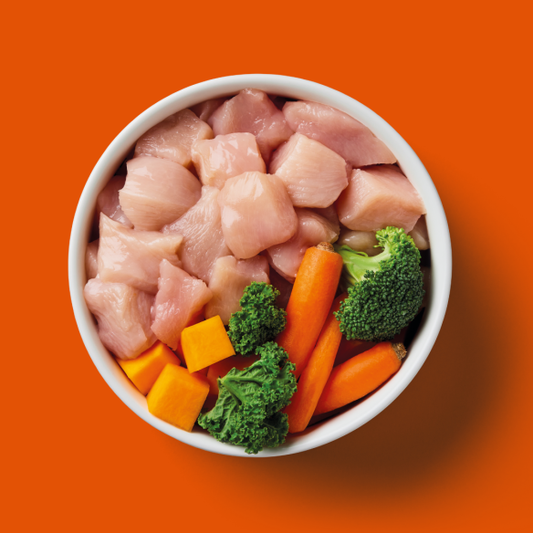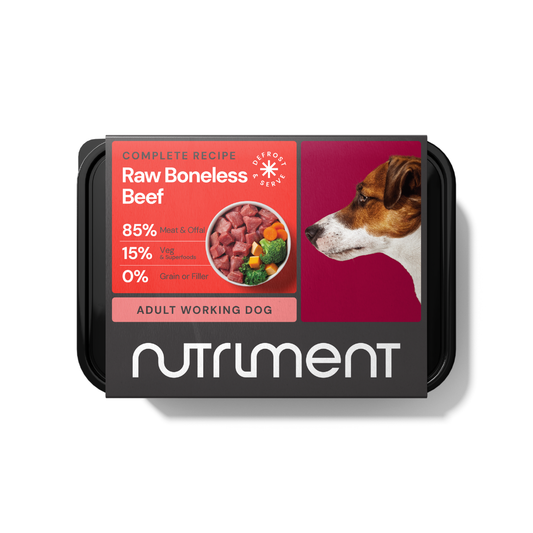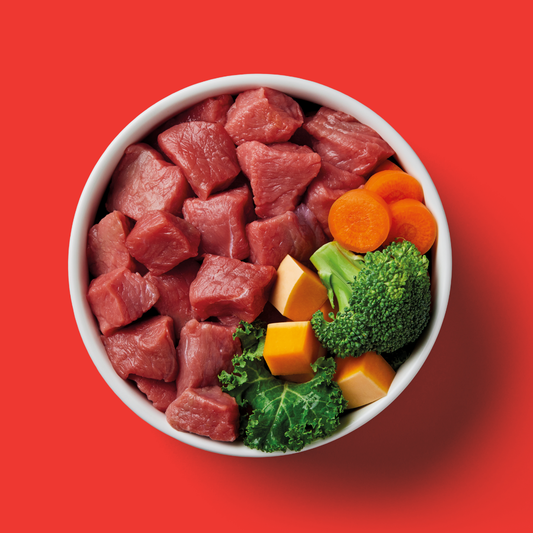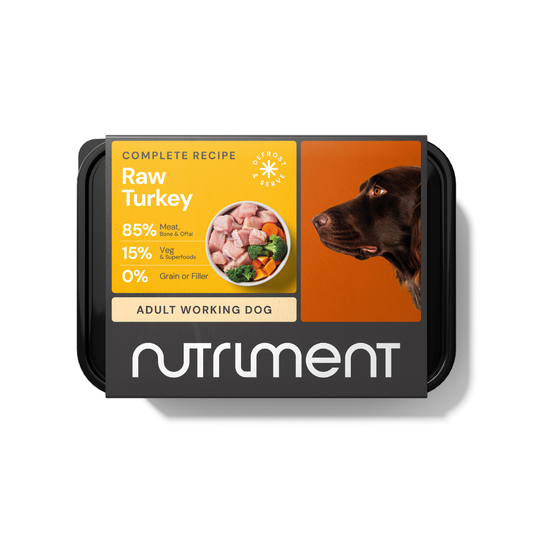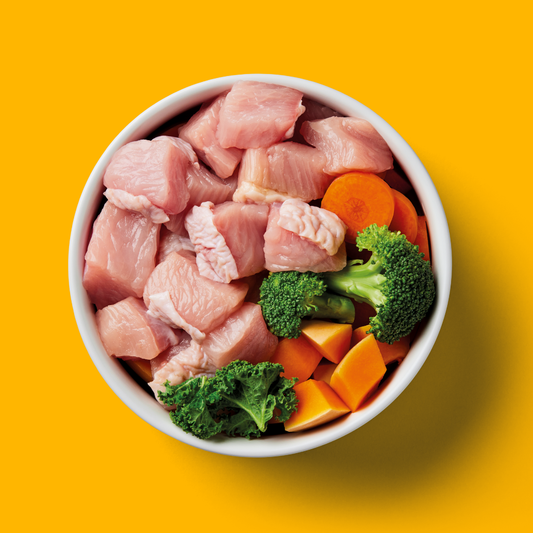Shopping Basket (0)
Total Weight
0.0 kg
Order Total
£0.00
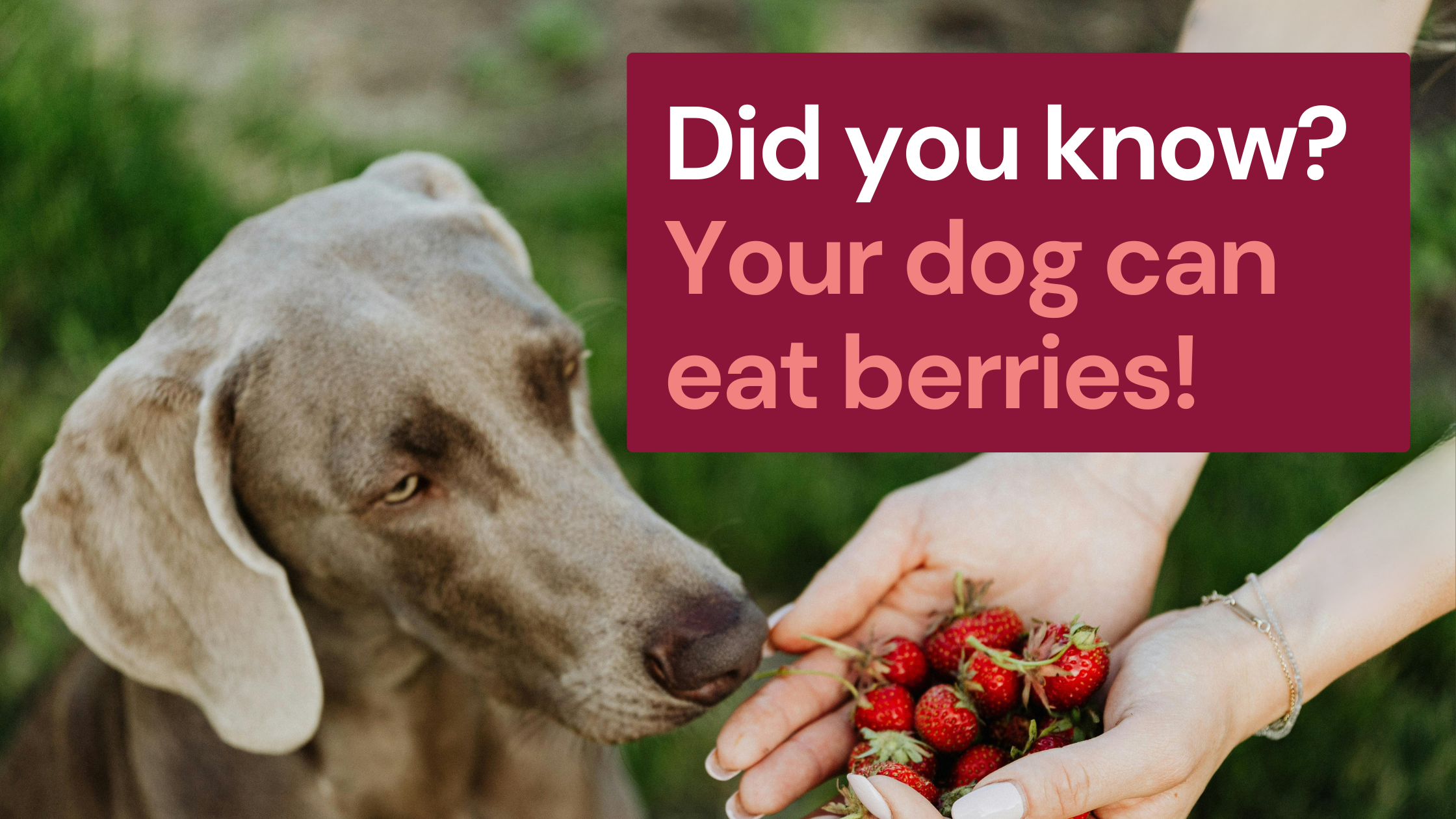
We often get asked about what fruit and vegetables are safe for dogs to eat. As advocates of a raw, fresh and biologically appropriate diet, we encourage the feeding of safe fruits and veggies as a way to boost nutrient intake, vary tastes, textures and flavours, and keep your dogs happy and healthy in the most natural way.
It’s common knowledge that grapes and raisins are toxic to dogs, but you may be less of aware of other fruity dangers, and just as importantly, fruity delights that your dog should and should not enjoy.
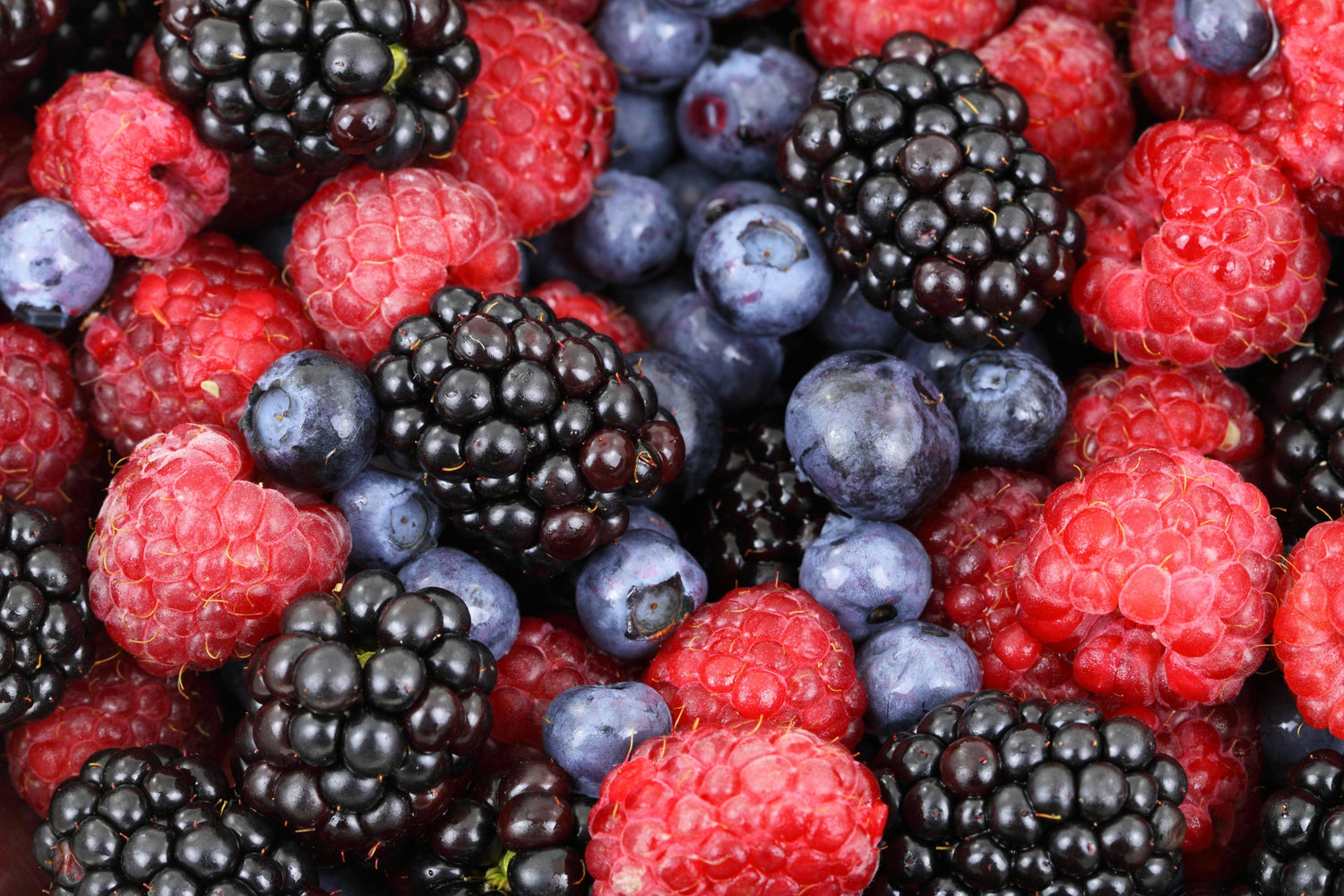
Focusing on berries – firstly, what is classified as a ‘berry’
Botanically speaking, a ‘berry’ is defined as a fleshy fruit without a stone (pit) produced from a singular flower containing one ovary. You may be surprised to learn that cucumbers, bananas, avocados, pumpkins, and watermelon are all technically berries. Berry interesting indeed!
Whilst feeding your dog any member of the berry family on the safe list, please bear in mind that all fruit contains sugar (albeit natural) and so your dog’s sugar intake should be monitored to avoid any unwelcome side effects. A general rule of thumb is to ensure your dog eats fruit as no more than 10% of their overall diet.

Safe to Eat
Blueberries
Blueberries are a delicious snack for dogs that are packed with a powerhouse of nutrients including fibre, vitamin C, vitamin K, manganese and potassium, whilst also being low calorie, low salt and virtually fat-free. Served alone or mixed with their food, fresh or frozen, blueberries make a great treat for your dog to enjoy.
Raspberries, blackberries and strawberries
We’ve grouped these together separately for the botanical whizzes reading this post (we know you’re out there!). Although commonly considered as berries, they are technically aggregate fruits (fruits that consist of a number of smaller fruits). But regardless of whether you define them as berries or not in your house, they are safe to feed your dog. Fresh or frozen, you can feed these types of fruit to your dog to provide alternative textures and tastes, as well as a boost of nutrients including vitamin C, vitamin K, potassium, fibre, antioxidants, and more.
Did you know these are classed as berries?
Cucumbers and watermelon
These high-water content berry fruits are both safe to eat, and provide a nutritious snack packed full of vitamins, minerals and fibre while being very low in calories. They both provide a great source of hydration and are a great option for feeding dogs on a hot day. Please remember to remove the seeds from the watermelon before feeding as these can cause gastrointestinal harm.
Pumpkin and banana
Pumpkin and banana, both surprising members of the berry family, are both also great snack ideas for dogs on a fresh, raw diet. Pumpkin contains vitamins A, B1, B6, and C, copper, fibre, folate, and manganese, calcium, potassium and magnesium – which is why you’ll find it as an ingredient in a variety of Nutriment raw dog food products. Bananas also have an impressive nutrient list, including fibre, potassium, vitamin B6, vitamin C and various antioxidants and phytonutrients.
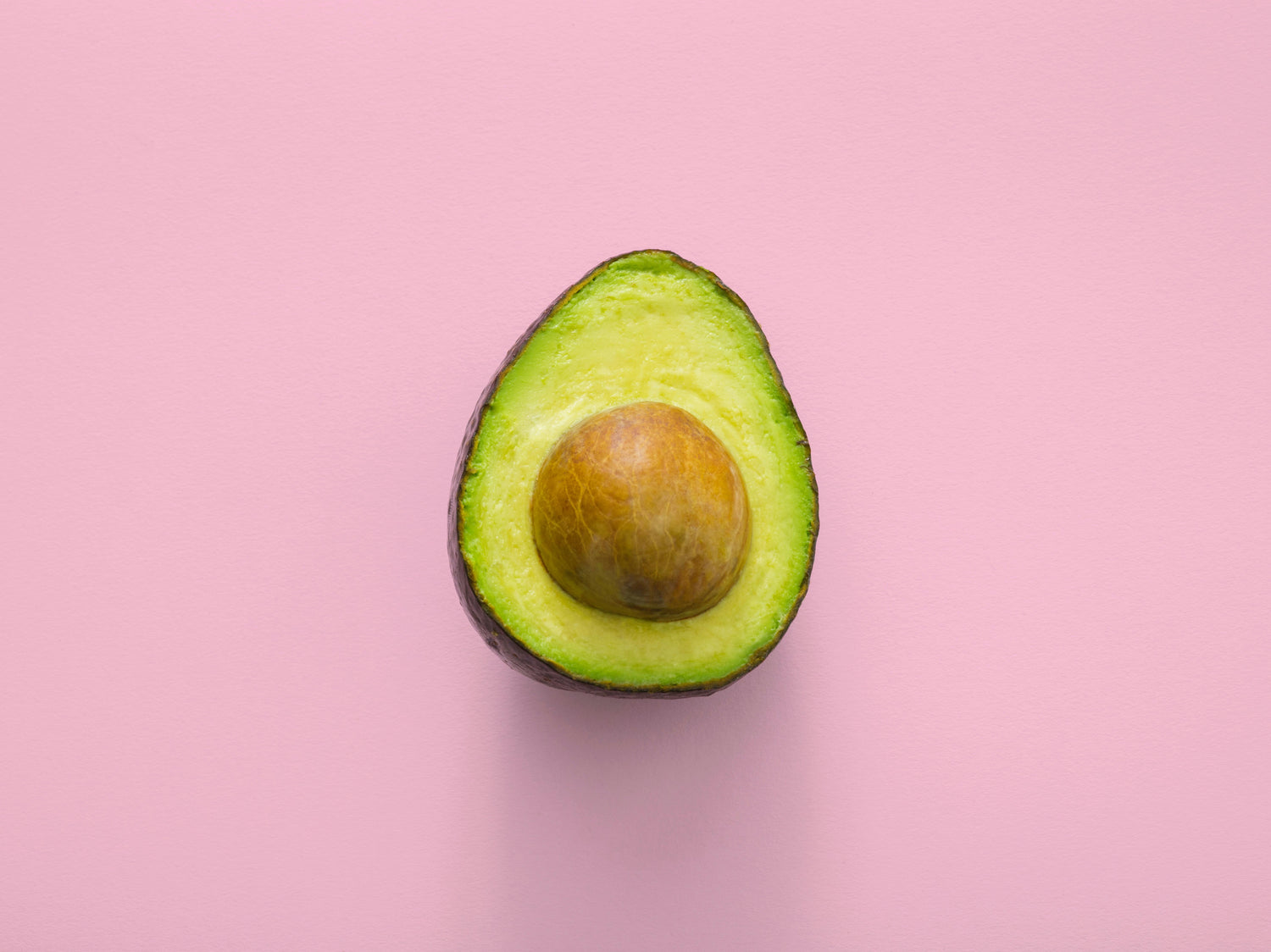
Unsafe to Eat
Holly berries, Juniper berries, Baneberries, Poke berries and Mistletoe berries
The above list of berries are unsafe for your dog to consume due to the choking risk of the pits, and/ or the toxicity of chemicals contained within the fruit. If you are concerned that your dog has consumed any of the berries on this list, please contact your vet for medical advice.
Avocado
Avocados, although not commonly considered berries, contain a substance called Persin which is in its leaves, fruit and seed and can cause vomiting and diarrhoea in dogs. They are also high in fat, making them unsuitable for dogs with weight issues or pancreatitis. In short, it is best to avoid feeding your dog avocado.
